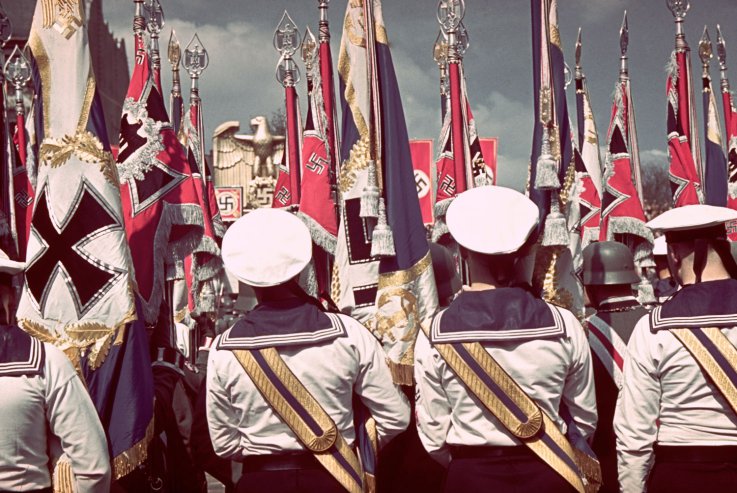Buffalo Jenkins
Daily Stormer
October 2, 2013

The existence or nonexistence of God seems to be a core issue in regards the existential crisis facing the entirety of Western civilization, therefore a crux issue for nationalists. While our Western scientific pursuit of truth leads us further and further away from religion, we are only just coming to terms with a dawning realization that this increasing self-awareness, or world-awareness, comes at the expense of our very primal motivations.
Atheism in practice (at least amongst the mob) appears to lead to a vacuous moral nihilism: robbing impulse, increasing fearfulness, destroying pride and Faustian enterprise. The argument goes that our moral foundation and core beliefs are the result of underpinning historical religious viewpoints, in every sense from our compassion to our curiosity. There are inherent inescapable moral differences in world view between say, an Irishman and a Chinaman, and these distinct world views are the product of culture that is the product of religion. Many argue that the very cultural drive that made the West great to begin with is owed entirely to the Christian view of man as above and apart from nature. When we, individually or as a society, determine human religion is not true, and do away with God, it seems we cannot do so without tearing out our ‘soul’ and leaving behind our ‘humanity.’ Powerless, viewless, adrift upon seas of relativism.
To those of us who accept this, but also can no longer believe in Christianity, this leaves a particular ethical conundrum. While I am deeply interested in pagan morality and myth, I can no more will myself to literally believe it than I could the Tooth Fairy. How then, in good faith, can I promote religion in any sense, pagan or christian or otherwise, while at the same time knowing the alternative is nihilism and doom? I believe the answer is twofold, and lies within. There are rational reasons to reject nihilism and affirm a cyclical life-everlasting. While I can no longer literally believe the Jesus myth I was taught as a child, I am perfectly happy to step over agnosticism and embrace deism. I have no evidence-based reason for this, save for one simple observation. And this observation is, while rational, largely based on feeling or instinct. And I have learned to trust my instincts.
If one does fully embrace atheism and the finality of death, and conquers the fear associated, a new conundrum arises in the brain. If existence is seemingly so futile, why does it bother existing in the first place? If you expand this beyond the personal or human sense and view it macro-cosmically and micro-cosmically, a man can compare his own life to the life of the universe itself. In a universe that follows various rational laws, and appears to have a kind of flow and cycle, how does it make sense for the cosmos to exist for a limited, finite time, only to follow that with an infinity of nonexistence? Would it not be more parsimonious to remain nonexistent to begin with? Why disrupt an eternity of perfect nothing with a pesky, temporary blip of existence, and how or why would it come about, and to what end? What is a finite period followed and preceded by an infinity, how can it exist at all? It strikes one then that the existence of the universe is itself evidence that it is part of an infinite cycle, and therefore my own existence evidence that the material universe, and me as part of it, are potentially part of an everlasting cycle of beauty and brutality. That even if the universe does die, that death could not be infinite.
So where does that leave us? It does not de facto describe an existing god, but it does describe meaning, and affirms life. And in the absence of an anthropomorphic deity motivating these cycles and natural laws, why not place one (or many)? Edify the Universe in representation. Create an Odin, as needed, assume it is preordained by natural law and use that strength to save our culture and remotivate the present. Morality needs a framework, and the world itself is evidence of God.
The second point upon which to reject nihilism in absence of religion is the reality that primal moral motivations have an ancient, race-based basis. The Chinaman and the Irishman are inherently morally different because of the blood, and the DNA, and not religious history. The Chinese would be much the same without Confucianism or Taoism or Buddhism, and Europeans the same with or without Paganism and Christianity and atheism.
The answer is always to follow one’s nature, and if existence itself disproves the nihilist worldview, then nihilism is against nature. And thus a nationalist and a pagan and a true European works backwards from what is natural and what is real.
 Daily Stormer The Most Censored Publication in History
Daily Stormer The Most Censored Publication in History


